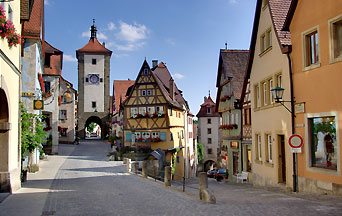
There are those who do not understand the urgent need for order since they see it merely as an arbitrary organizing of affairs. To them, order is an artificial system that may get things done but is hardly an essential need.
Given the fact that modern systems, especially big government, have caused so much harm, many in modern society prefer there be no order but rather the proliferation of freedom outside order where they can do whatever they want.
Such people fail to see that order is something much more profound and sublime than just simple man-made systems. They do not have the desire to inquire more deeply into what order is. Above all, they do not wish to assume the duties that order imposes upon men and society.
But order is necessary, for as Russel Kirk says, it is the first need of the soul. When virtue is practiced, one embraces a framework of ordering principles that impart peace and well-being to all society since things then function properly according to their nature.
Learn All About the Prophecies of Our Lady of Good Success About Our Times
Order allows the person to understand the world by perceiving that there is an order in the universe that extends beyond individual situations and has meaning and purpose. One can discern universal principles according to which things function and interact. All this reflects an organizing intelligence that hovers above Creation. This order allows for an impressive unity around these principles, and an amazing diversity in their application.
This is why Saint Bonaventure claims that order is one of the ways through which one can come to know and love God, the source of this ordering intelligence. Order is reflected everywhere in God’s Creation and cannot fail to cause wonder in those who know how to observe it.
The great Franciscan theologian finds order because of “duration, situation, and influence.” That is to say, the principles that govern this order are valid for all times and places. There is no danger of natural phenomena abruptly changing as, for example, a tree growing downward. Even human nature remains markedly stable in what men do. It follows an order ordained by God by which men might come to know Him.
This order is further reflected in the complexity of Creation. There is a hierarchy of complexity in all things, in such a way that some things are simple in their workings while others are more intricate. This ordering allows animals, plants and minerals to be classified and their role in Creation to be understood. This broad range of complexity is found in proportional and gradual intervals that make Creation resemble a ladder without any missing rungs. Thus there are higher and lower orders, noble and less noble parts that make up a grand mosaic reflecting God in so many of His aspects.
Saint Bonaventure also affirms that laws and precepts are yet other ways in which one can come to know God through order. Nature follows a law that ensures that things function according to their purpose. The law of gravity, for example, cannot be repealed. The moral acts of men are regulated by the natural moral law which, if followed, gives rise to the ordering of society and the common good. Finally, divine law—found in the laws and precepts of Scripture –orders men toward their final end in God. All just law reflects the immensity of God’s wisdom.
The final manner of knowing God through order is through “the order of the divine sacraments, rewards and punishments in the body of the Church.” The functioning of the Catholic Church in all Her ways of administering justice and mercy, Saint Bonaventure states, reflects “the immensity of God’s goodness.” Indeed the Incarnation, Passion and Death of Jesus Christ opened the doors of redemption to sinful man. His Church, through the Sacraments, provides sanctifying grace to allow men to participate in the divine life of God, the source of all goodness and order.
Hence, Saint Bonaventure concludes that “order leads us most obviously into the first and highest, most powerful, wisest and best.” When things are in order, they follow a logic that naturally turns toward the highest good which is God. Far from being an arbitrary system, order is one way by which one can know God and reach sanctification and union with Him.

